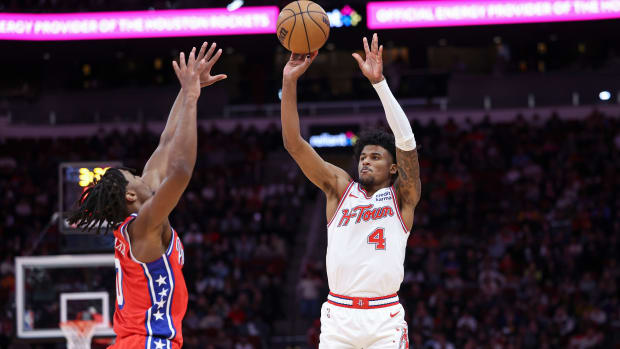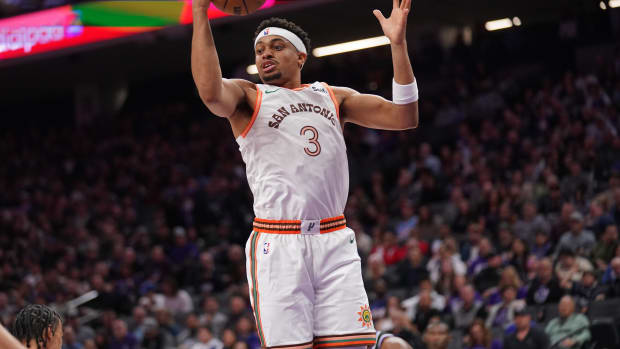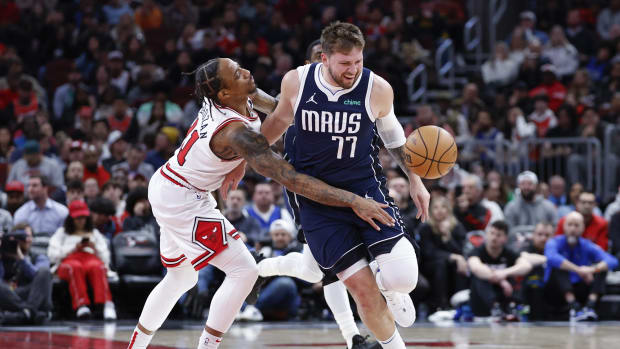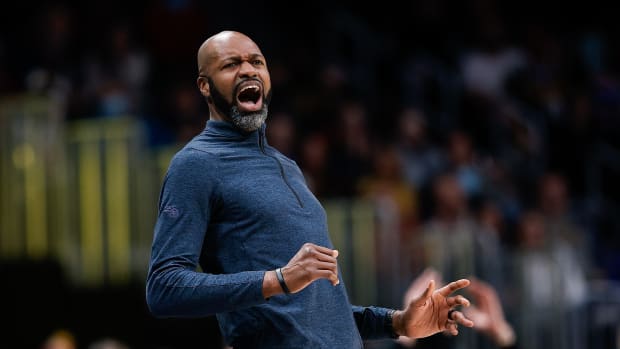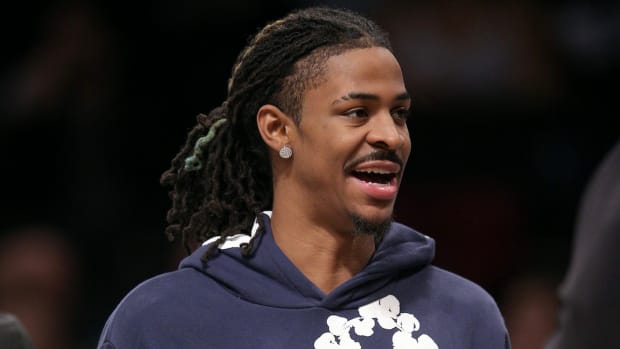Dream Scenario: Hoping for USA-Spain in the FIBA World Cup finals
The only matchup most stateside observers of the FIBA Basketball World Cup are talking about is one that’s not assured to take place. Throughout pool play, the intrigue was based less on whether Team USA and Spain could handle their opponents—the running assumption was that they would—than how those two teams stacked up against each other for a potential matchup in the finals. That logic is grounded on the rather large, if fraught, assumption that Team USA and Spain would advance from their groups and avoid being upset in the knockout rounds by a crop of capable teams featuring NBA players, such as Brazil, France and Greece, among others. It was no guarantee that the Yanks and Spaniards would make it, in other words.
Rose faring well in Team USA stint, could lead to new role as facilitator
Yet here we are, five days away from the conclusion of the tournament, and Team USA needs one win to advance into the final. Spain, meanwhile, needs two wins to get there. Neither teams’ path to this point has offered much in the way of surprise. Team USA and Spain dominated their respective groups, with the Spaniards facing a more rigorous slate of teams (Brazil, France, Serbia, Iran, Egypt) than the Americans (Turkey, Dominican Republic, New Zealand, Ukraine, Finland). That discrepancy alone may suggest that Spain will hold the advantage when it comes to competitive preparedness. Even so, who’s to say Team USA isn’t capable of pulling off one of those so-called ‘switch flips’ we all discuss every year in the lead up to the playoffs?
Team USA has won its seven games by an average margin of about 33 points, but that hasn’t eased doubts about the juggernaut lurking on the other side of the bracket. Why is the prospect of facing Spain so interesting/terrifying? Start with this play, from the second quarter of Team USA’s quarterfinals win over Mexico:
That's Mexico center Gustavo Ayon, establishing post position and backing down Anthony Davis for an easy lay-in. Ayon, who will not play in the NBA this season after deciding to join European club Real Madrid, used his deft post work and physicality to score 25 points in 37 minutes. Against Spain, Team USA will have to defend three big men who can hurt them more than Ayon did. Pau Gasol is one of the most skilled post scorers in the league; his brother, Marc, is a savvy passer and adept finisher around the basket; and Serge Ibaka can match any of Team USA’s big men athletically. If stopping Ayon was a problem, it stands to reason the Yanks could have some real trouble containing Spain’s frontcourt Big Three.
The Spaniards’ length and athleticism could pose issues on the other end of the floor, too. The put backs and tip dunks that Team USA’s forwards have converted with hardly any resistance from overmatched opponents won’t come as easily against Spain’s frontline. This could be the game, for instance, where Kenneth Faried—for all his energy and activity around the basket—is neutralized by his relative lack of height (6-foot-8). The backcourt matchup isn’t exactly ideal, either, as Spain’s guards have experience playing with each other and should be able to find holes in Team USA’s perimeter defense. On top of it all, Spain would be playing with a massive home court advantage in Madrid.
Of course, the Americans would have plenty with which to attack Spain. Davis’s length and athleticism will help limit Ibaka and the Gasol brothers, while Spain could struggle to check Stephen Curry, James Harden and Klay Thompson, who scored a team-high 20 points against Slovenia. Another source of optimism lies in the play of Derrick Rose. The Bulls’ star point guard finished with 12 points in 18 minutes while unleashing the sort of athleticism and explosiveness that made him such a pleasure to watch before he missed most of the last two seasons with knee injuries. If Rose can keep that up, and Team USA is knocking down shots from the perimeter, Spain’s seeming frontcourt edge might not matter.
Before we get to see how any of these matchups play out, Team USA will face a game Lithuania squad that came within five points of upending the Americans in the 2012 Olympics. This game would have been more compelling if Lithuania had its star point guard, Mantas Kalnietes. Still, Team USA’s big men will have their hands full against Raptors big man Jonas Valanciunas, and it’s worth keeping in mind that Lithuania just beat a Turkey team that tested the Americans in group play. This very well could be Team USA’s most challenging game so far, and should serve as a solid tune-up—if not a legitimately challenging contest—for the championship showdown everyone’s looking forward to.






























